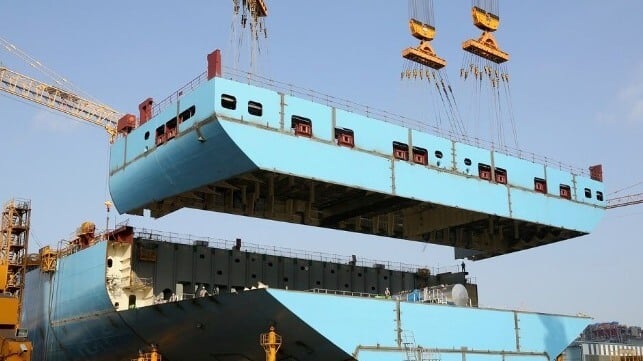Report: To Avoid Tariffs, Korea May Invest $200B in US Shipbuilding

After Japan and the European Union both convinced the Trump administration to lower their base tariff rates to just 15 percent, South Korea is anxious to do the same - and like its economic competitors, it is thinking about putting cash on the table to get what it needs. Seoul is pinning its hopes on the strength of Korean shipbuilding, and is proposing a multibillion-dollar Korean investment in U.S. shipyards in exchange for lower U.S. tariffs on Korean cars and other goods, according to multiple local media reports.
The diplomatic effort is motivated in no small part by Korea's automotive sector. Its growth depends upon exporting crossover SUVs and sedans to North America, and it has built a strong market presence in the United States because Korean-made cars are cost-competitive - but with new U.S. tariffs, that edge could change.
After newly-announced trade deals with the White House, European and Japanese carmakers can look forward to doing business in the United States under a 15 percent tariff regime. If Seoul doesn't reach a similar deal with the Trump administration soon, South Korean automakers will be burdened by a 25 percent tariff while their competitors are paying 10 percentage points less. In this context, Korean lawmakers are anxious to secure a deal, and are said to be considering the EU and Japanese approach for a business deal with Washington: offer investment funding.
To secure its trade deal, Japan pledged to put a total of $550 billion in foreign investment into strategic U.S. industries, including shipbuilding; the EU promised to buy $750 billion worth of U.S. energy commodities before the end of President Donald Trump's current term. For its own deal, Seoul is said to be contemplating an investment focused squarely on shipbuilding, valued in the range of $200-400 billion (local reports vary). This would be a generational change in American shipyards, and not only because of the high dollar value of the pledge. Seoul has pressed the case that South Korea is the best possible business partner in shipbuilding because Korean yards can transfer cutting-edge technology.

that matters most
Get the latest maritime news delivered to your inbox daily.
Of course, analysts were quick to note that success requires more. "Even if they invest, securing productivity will be difficult in the United States given the shortage of skilled labor," Yang Jong-seo, a researcher at the Overseas Economic Research Institute, told Korea JoongAng Daily. "This is something the government needs to resolve during negotiations."
Any bold headline numbers during dealmaking might be subject to future revision, based on the "nonbinding" values put forth in the Japanese and European agreements. Japan has emphasized that its $550 billion pledge is a verbal commitment, and the EU Commission acknowledges that its own $600 billion investment promise is based solely on private-sector European business decisions. The EU's $250 billion annual energy purchase commitment is worth further scrutiny: it exceeds the value of all U.S. oil and LNG exports by more than $100 billion a year, according to commodities research house Gakeval. "It’s a nice number but it’s just not realistic," Warren Patterson, head of commodities strategy at ING Bank, told the Wall Street Journal. "You’d essentially have to divert all energy trade. That’s just not possible."
